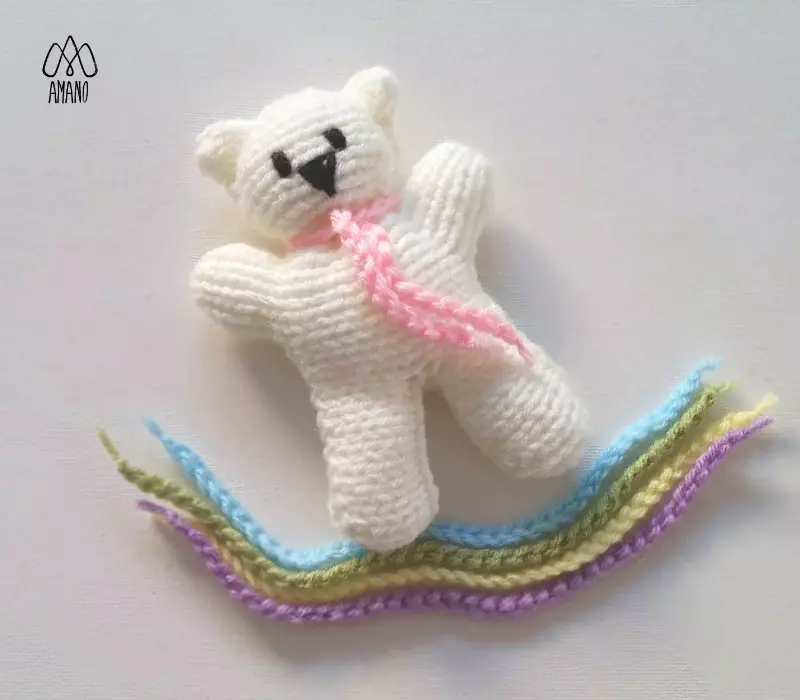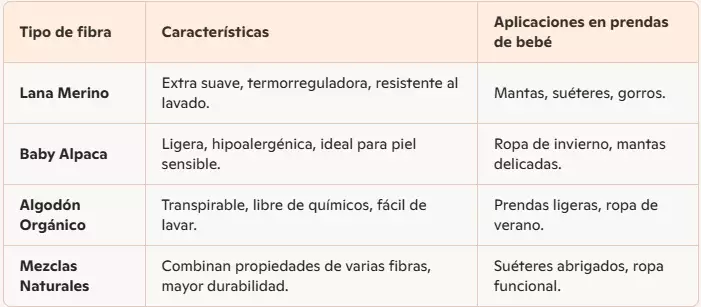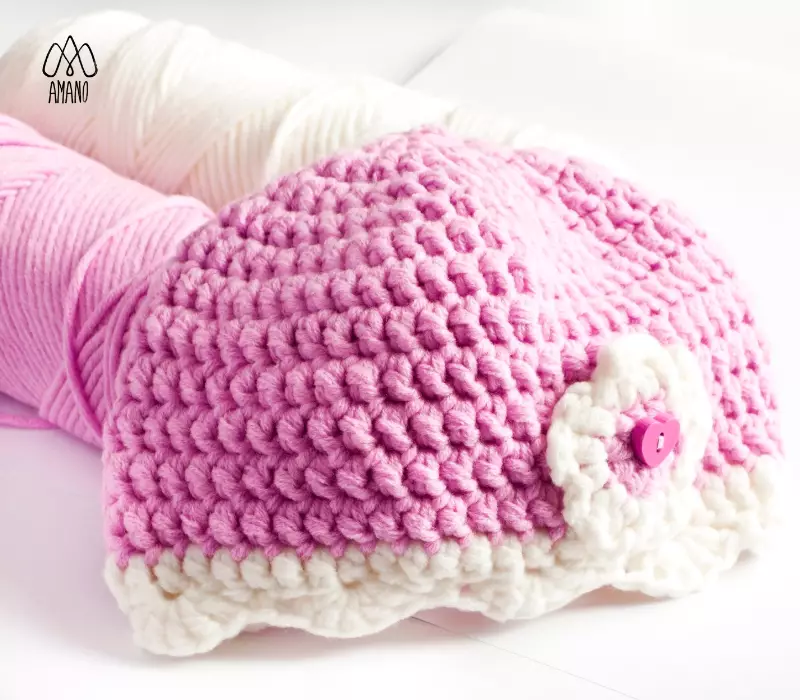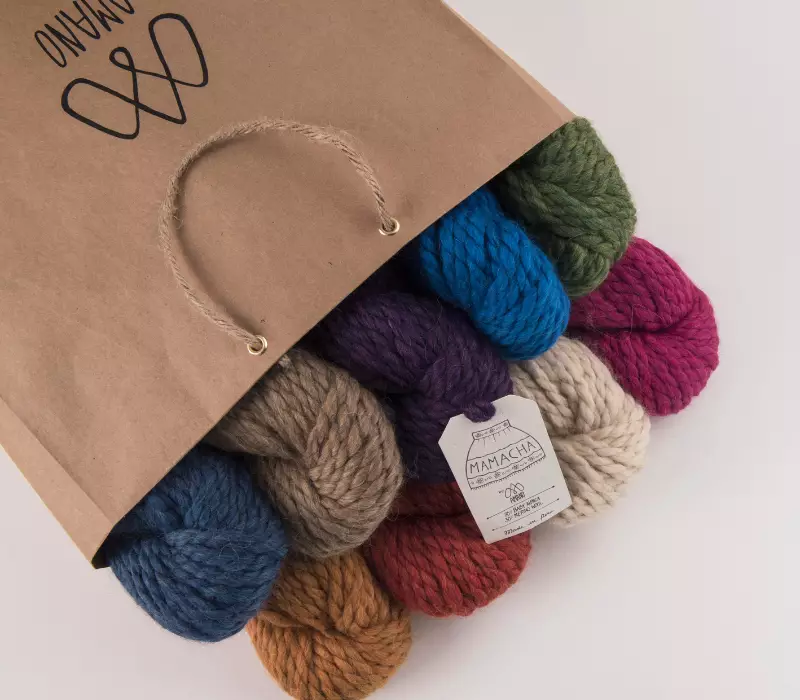Choosing the right yarn for knitting baby clothes is essential. We want to ensure that the material does not cause discomfort, irritation, or allergies on a baby's delicate skin. Additionally, the fabric must be warm without being rough or too thick, providing maximum comfort.
At AMANO, we understand the importance of these factors and offer a selection of natural fibers ideal for baby garments, ensuring a soft and safe texture.

What Type of Wool is Best for Knitting Baby Clothes?
Not all fibers are ideal for baby garments. Softness, thermal regulation, and ease of washing are fundamental aspects to consider. Below is a comparison of different options:
The choice of fiber depends on the intended use and the specific needs of each baby.

What is the Difference Between Baby Wool and Regular Wool?
Baby wool stands out for its exceptional softness and ability to adapt to sensitive skin. While conventional wool can be rougher and less flexible, yarns designed for babies have a finer and silkier texture.
There are also differences in maintenance. Baby fibers are often treated to withstand frequent washing without losing quality, which is essential given how often baby clothes need cleaning.
How to Tell if Wool is Natural?
One of the most effective ways to ensure that wool is 100% natural is to check the product label. It should indicate the fiber composition and, if possible, include certifications that guarantee its origin and quality.
Another important aspect is the feel. Natural wool has a characteristic texture—warm and flexible—without the artificial sheen that synthetic fibers often have.
Natural wools also absorb moisture and regulate temperature, qualities that can be noticed in daily use.

What is the Difference Between 100% Wool and 100% Merino Wool?
The difference lies in the fiber structure. Merino wool is one of the finest varieties within the sheep wool group, making it exceptionally soft.
While standard wool can have a thicker texture and a slightly rough feel, Merino wool stands out for its thermal adaptability and extreme softness. This makes it a preferred choice for baby clothing, where comfort is essential.
Additionally, Merino wool tends to absorb less moisture, preventing the baby's skin from feeling wet or uncomfortable.
Does 100% Merino Wool Itch?
No, Merino wool is known for its softness and does not cause itching. Its fine fiber structure makes it much more comfortable against the skin compared to thicker wools.
It is an excellent choice for garments that will be in direct contact with a baby's skin, providing a warm and cozy texture.
How to Identify High-Quality Wool?
High-quality wool should have a uniform texture, without irregularities or rough areas. It should also maintain its durability, resisting wear and washing over time.
Another key aspect is its ability to regulate temperature and absorb moisture without losing softness. The best wools offer a combination of comfort and durability, ensuring that the garment retains its shape over time.
Conclusion
Choosing wool for babies should take into account softness, ease of washing, and skin safety. At AMANO, we offer natural fibers selected for their quality and comfort, including options like Inti, Warmi and Mamacha, which combines Baby Alpaca and Merino to achieve the best texture and warmth for little ones.

If you're looking for safe and natural fabrics, our selection of skeins and hanks ensures well-being and coziness in every stitch.



